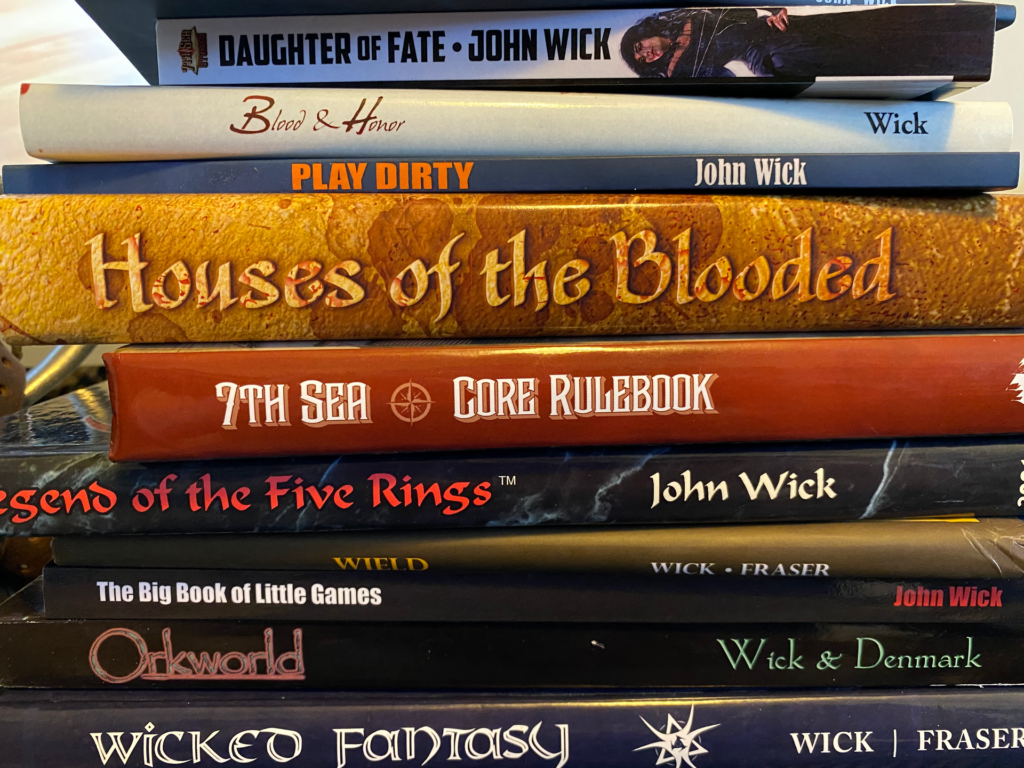(from the forthcoming 7th Sea: Second Edition Game Master chapter)
People always ask me how I feel about hearing GMs change the rules of games I’ve published. I always say the same thing: “Great! I’d love to see what they came up with.” That answer tends to confuse people, so then I often have to explain that I see RPGs as a kind of oral tradition. You can go to different cities, sit down at different game tables and play different versions of 7th Sea. To me, that’s exciting. And it was hard for me to explain why… until recently.
A few months ago, I read an article online called “How I helped to pull the rope that tolled the bell for OD&D.” (You can read it here.)
The article stunned me. In summation, the author—a kindly gentleman named Tim Kask—talks about the earliest days of Dungeons & Dragons, and how the rulebook wasn’t a rulebook at all, but a list of example rulings. The difference, he argued, was that rulings gave the Dungeon Master freedom to improvise creatively while rules limited the DM’s ability to run the game. He lamented that later editions went to the side of rules vs rulings and the game has suffered ever since.
Like I said, the article stunned me. (I could talk about it for hours, really. And have.) And it also got me thinking about how I run my own table. Many times, if I can’t think of a specific rule, I make something up on the spot. A quick ruling that’s fair, but also fast. I make the promise, “After the game, I’ll look up the rule,” and I do and try to keep it in my head for the next time. But, generally, if I can’t think of a rule, I ask for a quick roll of the dice. If the player has an Advantage that would benefit him, I let him use it. Sometimes, I even ignore an existing rule and create a new one that better fits the circumstance.
That’s how I want you to look at these rules. These are the rulings we’ve come up with, that we’ve found fair and useful. Sometimes, they’ll get in the way and a quick roll of the dice may be a better solution. Sometimes, the rules we’ve given you will fit like a glove and add to the fun.
The end result of all this navel-gazing is a simple piece of advice. When it comes time to run the game, you don’t need to have all 300 pages memorized. Just stick to the basics:
- You Create a Scene.
- Players Create Raises.
- Players use Raises to change the Scene.
That’s really all you need. Those are the only rules. All the rest is rulings. Suggestions we found useful. You may not find them useful. You may ditch one in a moment of forgetfulness or panic or dramatic necessity.
That’s okay. Nobody’s sending the 7th Sea Rules Enforcement Force to your door to make sure you get everything right.
Improvise. Have fun. And remember: it’s a storytelling game. And these are your friends. More importantly, this is your game. You bought it. You can change whatever you want in it, including the rules. Sometimes, especially the rules.
